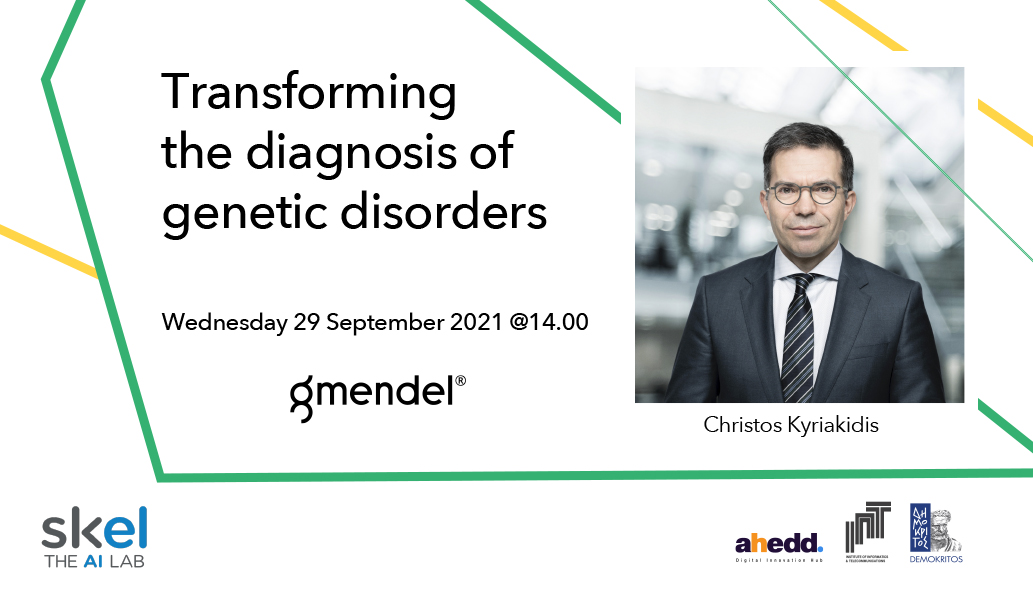
In the context of the interactive activities organised by SKEL | The AI Lab, a talk took place from the company gMendel® with invited speaker Dr Christos Kyriakidis, Co-founder & CEO.
The talk titled Transforming the diagnosis of genetic disorders was held online on 29 September 2021, while a Q&A session followed the presentation.
Watch the session here:
Short bio: After completing a Ph.D. in Biochemistry (Crystallography), an M.Sc. in Physics and an MBA (Master of Business Administration), C. Kyriakidis has pursued a career in commercial functions in pharma and MedTech companies. His general management and business development skills were developed while running a $130 million international business and as a founder of a biosciences start-up company (sold in 2014). His marketing and project management skills were developed in an FMCG environment (L’Oréal), from where he moved to pharmaceutical/medical devices industry (Novo Nordisk, ALK, GN), including subsidiary (Brazil), regional (Asia, Eastern Europe, Latin America, Middle East & Africa) and global headquarter positions (Denmark). As a scientist, who moved to commercial operations, he takes every opportunity to search for and apply new methods, technologies, and approaches in the organizations where he works. Mr Kyriakidis has been a people leader for 20 years, developing multicultural diverse teams to reach their best potential through high engagement and has lived in 9 countries and done business in 60+ countries on all continents.
gMendel® is a Danish start-up aiming to transform the diagnosis of genetic disorders for better disease management. Despite continuous advances in genetic testing technology, accurate diagnosis and treatment remain a great challenge for patients, doctors, and healthcare systems. The current clinical protocol does not always provide an accurate diagnosis or a diagnosis at all, due to prohibitive costs of advanced technologies and scarce expert knowledge. The gMendel® approach is from diagnosis to treatment. Their transformative approach bridges the gap between new generation genomic tools and their clinical implementation, providing a shorter path to accurate diagnosis and potential treatment. This means reduced time and costs for patients and healthcare providers.







